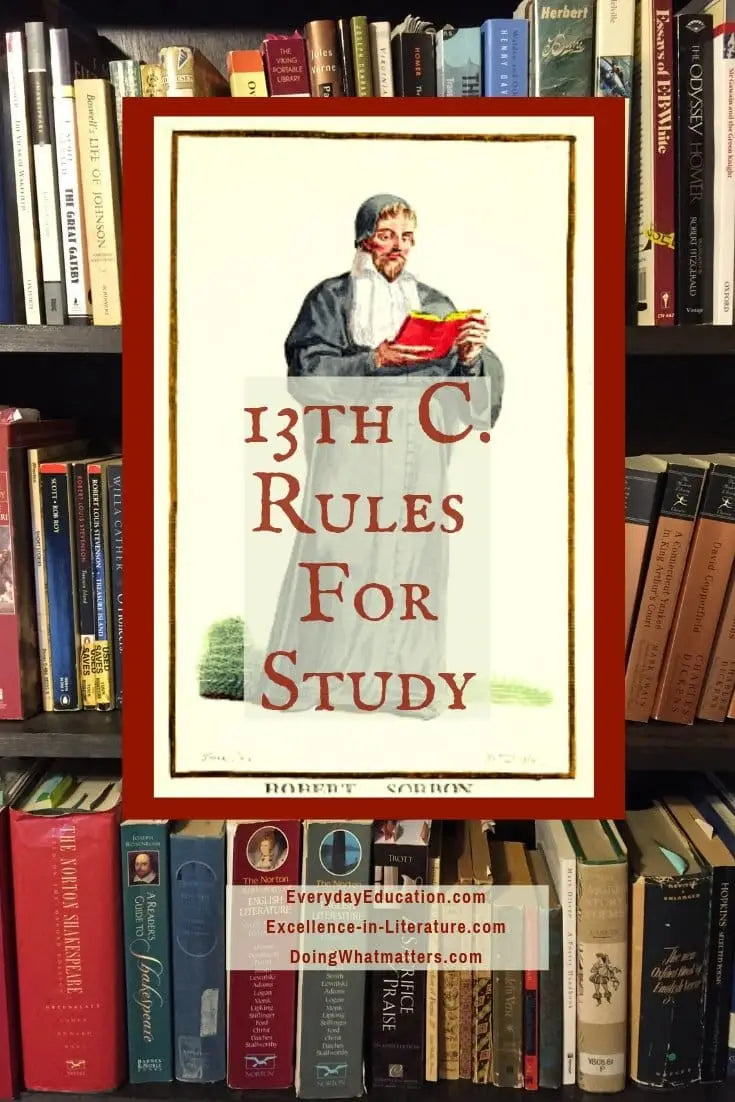13th-Century Rules for Study
Robert of Sorbonne, the founder of the famous Sorbonne college in Paris, gave six rules for study to his students. He wrote: "The student who wishes to make progress ought to observe six essential rules.
First: He ought to consecrate a certain hour every day to the study of a determined subject, as St. Bernard counselled his monks in his letter to the Brothers of the Mont Dieu.
Second: He ought to concentrate his attention upon what he reads and ought not to let it pass lightly. There is between reading and study, as St. Bernard says, the same difference as between a host and a guest, between a passing salutation exchanged in the street and an embrace prompted by an unalterable affection.
Third: He ought to extract from the daily study one thought, some truth or other, and engrave it deeply upon his memory with special care. Seneca said "Cum multa percurreris in die, unum tibi elige quod illa die excoquas"—When you have run over many things in a day select one for yourself which you should digest well on that day.
Fourth: Write a résumé of it, for words which are not confided to writing fly as does the dust before the wind.
Fifth: Talk the matter over with your fellow-students, either in the regular recitation or in your familiar conversation. This exercise is even more profitable than study for it has as its result the clarifying of all doubts and the removing of all the obscurity that study may have left. Nothing is perfectly known unless it has been tried by the tooth of disputation.
Sixth: Pray, for this is indeed one of the best ways of learning. St. Bernard teaches that study ought to touch the heart and that one should profit by it always by elevating the heart to God, without, however, interrupting the study."
In addition, he advised that "Meditation is suitable not only for the master, but the good student ought also to go and take his promenade along the banks of the Seine, not to play there, but in order to repeat his lesson and meditate upon it."
Although this advice is couched in old-fashioned terms (he was writing in the thirteenth century, after all!), it is still good advice today. In fact, it is very similar to the study methods that were taught at my graduate school orientation, and virtually identical to the way I have always studied scripture and other important books. No matter what subject you choose to learn, these rules for study will help you learn deeply and remember long.
TIP: Copy the rules into your commonplace book, and ponder them until you know their principles by heart. Robert de Sorbonne (or Sorbon) (9 October 1201 – 15 August 1274) was a French theologian who founded the Sorbonne college (now the University of Paris). In addition to his educational duties, he was also the chaplain of Louis IX of France.
